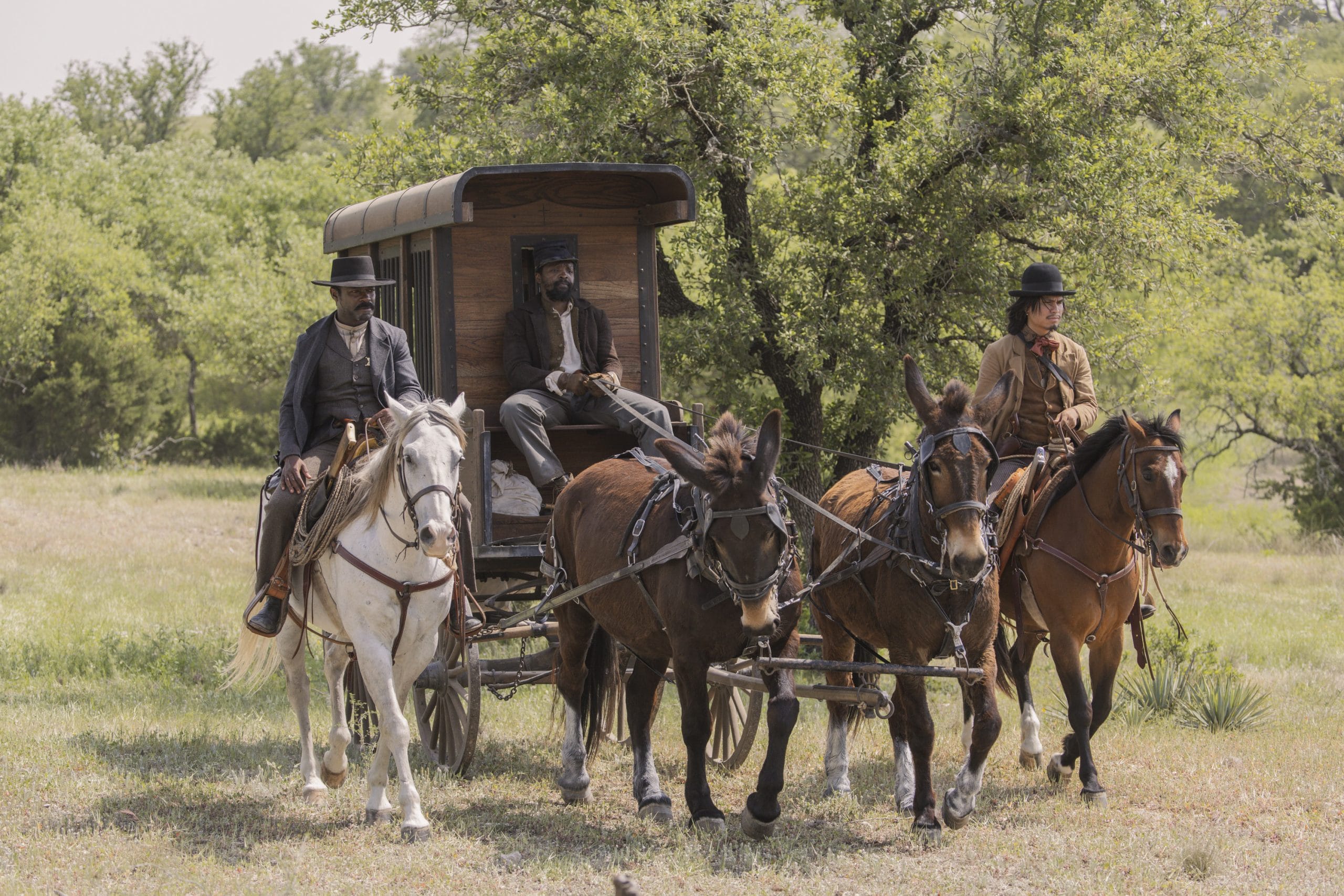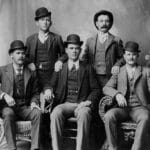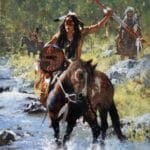The Wild West, a period painted with images of dusty towns and saloons teeming with rough-and-tumble characters, wouldn’t be complete without its legendary lawmen. Among these figures stands Bass Reeves, a renowned US Marshal who traversed Indian Territory, solidifying his reputation as a skilled and intrepid enforcer of the law. Paramount+’s series “Lawmen: Bass Reeves” endeavors to bring this icon to life, but it also introduces viewers to a fictional character, Billy Crow, who becomes Reeves’ partner in crime-solving. This begs the question: who is Billy Crow, and did he actually ride alongside the legendary Bass Reeves?
Unraveling the Enigma of Billy Crow
Billy Crow, portrayed by actor Forrest Goodluck, is introduced as a Cherokee outlaw with a sharp intellect and a silver tongue. As the series progresses, he joins forces with Reeves to dispense justice throughout the untamed territories. However, historical records reveal no trace of a posseman by that name ever working with Bass Reeves. This discrepancy between historical accounts and the narrative presented in “Lawmen: Bass Reeves” has sparked considerable curiosity and debate.
The inclusion of Billy Crow, a fictional character, in a series ostensibly based on historical events requires careful consideration. It’s plausible that the show’s creators intended to highlight the vital contributions of Native Americans in frontier justice, a facet of history often relegated to the shadows. By creating a fictional character to represent a very real dynamic, “Lawmen: Bass Reeves” attempts to rectify this historical oversight and offer a more inclusive portrayal of the period.
The Importance of Representation: Billy Crow’s Symbolic Role
While Billy Crow may be a product of creative license, his presence serves as a powerful symbol of the often-unsung alliances between lawmen like Bass Reeves and Native American communities. Reeves, operating in Indian Territory, would have relied heavily on his understanding of Native languages, customs, and the lay of the land. It is highly likely that he collaborated with individuals who served as guides, trackers, and sources of intel, much like the fictional Billy Crow.
“Lawmen: Bass Reeves” seems to leverage Billy Crow’s character to embody this historical reality. While no single historical figure might perfectly map onto Billy’s characterization, he embodies the spirit of collaboration and shared purpose that likely characterized Bass Reeves’ interactions with Native American allies.
Balancing Act: Historical Accuracy vs. Narrative Engagement
The creators of “Lawmen: Bass Reeves” appear to walk a tightrope between historical accuracy and the need to craft a compelling narrative. Billy Crow’s character is emblematic of this delicate balance. His presence enriches the storyline and provides a lens through which to examine the complexities of frontier justice, but it also necessitates a critical examination of the liberties taken with historical events.
Some historians argue that while representing marginalized communities is crucial, doing so through a fictional character risks muddying the waters of historical accuracy. Others contend that it’s a powerful way to bring these stories to light, particularly given the historical erasure of marginalized voices. By prompting these discussions, “Lawmen: Bass Reeves” indirectly underscores the importance of seeking out diverse perspectives and engaging critically with media representations of the past.
Billy Crow and The Lone Ranger: Echoes of Inspiration?
The inclusion of a fictional partner in Bass Reeves’ story might lead some to question the historical validity of the lawman himself. To be clear, Bass Reeves was a real and remarkable figure, credited with apprehending over 3,000 criminals during his tenure as a Deputy U.S. Marshal. His exploits, much like those of Billy Crow in “Lawmen: Bass Reeves,” have sparked connections to another legendary figure: The Lone Ranger.
While no definitive proof exists to confirm a direct link between Bass Reeves and The Lone Ranger’s creation, historians have suggested that Reeves’ life might have served as inspiration. The parallels are undeniable: both were expert horsemen and marksmen, renowned for their courage and unwavering dedication to justice. This has led to speculation that Reeves’ compelling life story, including his collaborations with Native American communities, might have influenced the writers who conceived The Lone Ranger.
The debate surrounding Bass Reeves’ potential influence on The Lone Ranger is a testament to the enduring power of his story and the ways in which real lives can intertwine with legend. Regardless of whether a direct connection exists, acknowledging the similarities allows us to appreciate the historical figures and narratives that have shaped our cultural landscape.
Conclusion: Unveiling the Layers of History and Fiction
Billy Crow, while a fictional character, shines a light on the often-overlooked role of Native Americans in shaping the narrative of the Wild West. “Lawmen: Bass Reeves,” through its creative liberties, provides a platform to acknowledge and celebrate these contributions. While the series’ historical accuracy might be open to debate, it undeniably sparks crucial conversations about representation, historical erasure, and the power of storytelling. As viewers, we are encouraged to delve deeper into the historical context, seek out diverse perspectives, and critically examine the narratives presented to us.
- Unraveling Einstein’s Legacy: Who Inherited His Genius? - July 14, 2025
- Unlock Einstein’s Family Tree: Bernhard Caesar & Untold Stories - July 14, 2025
- Unveiling Bernhard Caesar Einstein: His Life & Albert Einstein’s Legacy - July 14, 2025
















